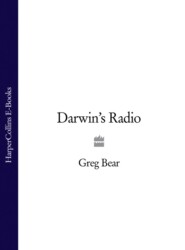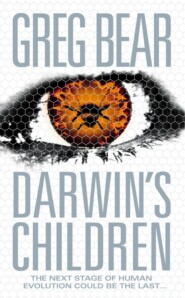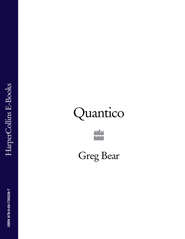По всем вопросам обращайтесь на: info@litportal.ru
(©) 2003-2024.
✖
Vitals
Автор
Год написания книги
2018
Настройки чтения
Размер шрифта
Высота строк
Поля
Set the Wayback machine, Sherman.
CHAPTER THREE (#ulink_7cf8a0c1-9cb7-56d3-996b-ba428ef6e06c)
Three weeks before, a slender little blue helicopter, bright as a fresh bug, had buzzed me over Puget Sound to Anson Island. It was six o’clock on a Northwestern spring evening and the weather was gloriously lovely. I felt more alive than I had in a year, since the divorce from Julia.
I am normally a nervous flier, especially in choppers, but the young, square-jawed pilot, his eyes wrapped in metallic blue shades, was reassuringly deft, and I was too busy enjoying the view.
‘I was wearing my powder-blue suit,’ Philip Marlowe tells us in The Big Sleep, ‘with dark blue shirt, tie, and display handkerchief, black brogues, black wool socks with dark blue clocks on them. I was neat, clean, shaved and sober, and I didn’t care who knew it…I was calling on four million dollars.’
I wore a black cotton sports jacket and pants, wrinkled white-cotton dress shirt with black tie, high black socks, shiny black brogues – that much was the same – and I was calling on forty billion dollars. Owen Montoya could have bought and sold the Sternwoods a hundred times over, even accounting for inflation.
I had worn that same outfit when visiting other angels, financial backers visionary enough or cracked enough – sometimes I had a hard time telling which – to spend small fortunes on a microbiological Ponce de Leon. I hadn’t done too badly; my fancy footwork had kept me funded for the past five years.
I was no fraud. If the angels were smart, they sensed that I almost had the goods. If they were stupid – like Mr Song – they bought futures in snake-bladder extract.
I was very close. Just a little cash and a lot of very hard work, and I could jump the wall around Eden and find the ultimate treasure: vim and vigor for a thousand or ten thousand years, maybe longer, barring accidents or geological upheaval.
It was an amazing thought, and it never failed to give me chills.
The chopper performed a smooth bank to the north, and we flew over Blakely Point on Bainbridge Island. East of our flight path, midway between Bainbridge and Seattle, a cruise ship posed like a serene and well-fed lady on the fine ripples of the blue sea, her bow nosing into a bank of golden fog. Passengers gathered on a glassed-in observation deck below the soaring bridge, swam in three sparkling silver pools, spun around an open-air dance floor amidships. The kind of vacation Julia loved. At the end, she had started going on vacations without me.
Julia had ultimately found my talk about as exciting as a course in colonics. She had hidden her boredom for a few years, excited to be married to a young tenure-track comer at Stanford, a guy who regularly published little letters in Nature and longer discursions in The Journal of Age Research. But the gap in our minds, our educations, eventually wore her down. She complained she could not –
Enough of that shit. No way to spend eternity, moping over the past.
Two white-and-green car ferries plied the waters with more purpose and energy, their wakes crisscrossed by sailboats, catamarans, and cabin cruisers. Rich and powerful sailors everywhere, but how many had heard of me? How many would even care to listen to my ideas? Not many. They were like sheep running toward the slaughter chute, happily shaking their woolly heads, baa, baa.
I gritted my teeth and tried to enjoy the sunset doing a King Midas on the sound.
Thirty minutes out of Seattle, the chopper dropped a few hundred feet to circle a medium-sized island, lightly dotted with big, old, frame houses. We rounded a thinly wooded point to hover above a wide, deep cove. I squinted to riddle the mystery of a square, flat-topped floating object anchored a few hundred feet from the shingle-and-sand beach. Not a houseboat…
The golden glare off its white deck dimmed as we circled, and I made out a landing circle. It was a helipad, mounted high above the water on immense pontoons.
‘It’s a hundred feet on each side,’ the pilot told me, smiling with impersonal pride. ‘Equipped with refueling tanks, an automated weather station, and a repair shed. Impressive, isn’t it? The island association refused Owen permission to put a landing field on his property.’ He winked at such antiprogressive attitudes. ‘Owen floated one instead.’
I clenched my fists, but the pilot expertly, and with barely a judder, brought the little dragonfly down in the precise center of the landing circle. He waved to an attendant and switched off the engine. The blades slowed with a disappointed trill as two men in gray overalls clamped the rails to the deck.
The pilot released the passenger-side door and pointed to the edge of the pad. ‘Elevator and stairs over there. I’ll wait,’ and he smiled as if I were the most important man in the world. Next to his boss, of course.
As I walked toward the stairs, a breeze pricked the hair on my arms through my sleeves. Over my shoulder, I saw the pad crew, hooding the craft against salt spray.
Walking along the floating bridge to the beach, I had my first clear view of the house. Montoya’s mansion faced the cove with a thirty-foot-high window-wall. Six Dale Chihuly chandeliers hung behind the tinted glass, spaced evenly across the lobby like frozen purple and blue fireworks.
I had not spotted the house on the chopper’s approach, and now I understood why – the top was covered with patches of low forest, indistinguishable from much of the rest of the windswept island.
Betty Shun, Montoya’s personal assistant, walked across the beach as I reached the end of the bridge. About my age, give or take a couple of summers, she stood five and a half feet high. She had a pert, sensual, but not very pretty face capped by a mushroom of thick black hair. Her body was her prime asset and she knew it. A clinging black shift revealed many attractions, sculpted by much working out and, judging from the adipose structure of her round face, dietary determination. I sussed a fellow traveler, ready to grab life, shake it, and ask a few hard questions.
‘Dr Henry Cousins, I presume?’ Shun asked with a lovely lilt.
‘Hal,’ I corrected.
‘Hal. Welcome to Anson Island.’
The wall of glass and the mansion that lay hidden behind it bespoke a tasteful elegance that cared little for outward show. Montoya was no Trump or Vegas kingpin. Only from the cove did you know that a rich and powerful man spent time here.
‘Last week Owen hosted Gus Beck,’ Shun told me as we made the beachfront walk. ‘And Philip Castler the week before. He didn’t like what they had to say.’
‘Really? I’m shocked.’
Shun smiled. ‘So many wiseasses in this business,’ she said. ‘Be nice.’ I could sense her intelligence, competitive and fierce, like heat. I idled a stray masculine thought about conquest, then shut it off. Something about that face, that body. Shun, for all her charms, would be too spirited to stay with any man for long. At least, any man worth less than a billion dollars.
‘Gus was full of talk about uploading,’ she said. ‘You know, into silicon brains. I’ve never been much persuaded by that, have you?’
‘Not much,’ I agreed.
‘Philip was brilliant but far too vague. And he kept asking about money. That’s rude, and unnecessary. If Owen’s visionaries have their feet planted firmly on the Earth, money isn’t a problem.’
That was something I had learned long ago when going forth, hat in hand, to visit the Sternwoods of the world.
‘Owen and Philip had a bit of an argument, I’m sorry to say. Mr Castler went home red-faced and empty-handed.’ She smiled cheerfully, as if tallying sports scores.
Montoya had made his money off paper clips, or the equivalent in the cybernetic age: TeraSpin memory drives for home appliances, smaller, faster, cheaper, and denser than any others. Ten years ago he had been worth about a million dollars in stock – a few thousand in cash – and had lived in a ratty old Wallingford house west of the University of Washington. Now he was one of the richest men in a territory that on any financial map lay just a few degrees north of the Sultanate of Brunei.
I had never met so rich an angel, and I wondered what Montoya would be like. The last picture I had seen had been at least five years old. It is so easy to confuse the rich and the powerful with gods. Both can make or break you at a whim. The main difference is that our modern gods like to be called by their first names.
Shun reached up and straightened my collar as the tall glass doors slid aside. An odor of anise and crème de menthe filled the moist evening air.
CHAPTER FOUR (#ulink_47e94684-3c85-50e2-b4db-ea1c232a46af)
‘Almost there.’ Dave shook my shoulder and waved his hand at the pinging depth gauge, then switched on the bottom-scan sonar. We were about a hundred feet above the seafloor. A sound-etched picture of the terrain danced in ghostly blue waves across the display. The screen showed a stack of parallel lines between two walls of rock. The lines vaguely resembled a long rib cage.
‘Is that a dead whale?’ I asked, shifting right and reaching out to touch the LCD screen.
‘I doubt it,’ Dave said. ‘We’re coming down right over it. Let’s take a look-see.’
‘Dead whales are cool,’ I said. ‘They’re like gas stations in the desert. Propagules move from corpse to corpse on the seafloor. Some get to the vents and set up shop for good.’
‘That’s one theory,’ Dave allowed. ‘But I still don’t think it’s a whale.’
He pulled a graduated lever and the DSV shuddered as we dropped most of our steel ballast. ‘We’ll try for ten pounds below neutral. “Dance like a butterfly, sting like a bee.”‘ He pushed compressed air into the ballast tanks until we reached neutral buoyancy. Then he aimed the thrusters down and slowed our descent.
We hovered at about fifty feet, the sonar pinging insistently. He turned off the thrusters to avoid raising a cloud of silt.
‘Get that bottom light bar,’ he suggested.
I flipped the switch that turned on a bank of lights mounted directly below the pressure sphere.
‘I’m going to move some ballast forward.’ Dave pitched the nose down thirty degrees, giving us a wide-angle view of the bottom, and propelled us forward in controlled ‘flight,’ much more precise than weighted free fall. The DSV frame was equipped with a little railway system of steel weights that could be shifted fore and aft, or port and starboard, to adjust trim. This saved the sub from using thrusters, conserving power. The more power we kept in reserve, the longer we could stay on the bottom.









